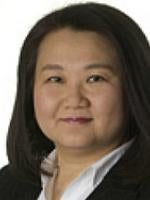On February 19, 2013, the United States Supreme Court heard oral arguments in Vernon Hugh Bowman v. Monsanto Company. This case has far-reaching implications for the patent exhaustion or first sale doctrine in self-replicating technologies such as seeds, microorganisms, tissue culture, etc. For example, even if a seed company does not have a sophisticated, licensing or conditional sale program like Monsanto, under the Federal Circuit holding on appeal, if a grower buys patent protected seeds (first generation) without any restrictions and saves later generations of seeds for replanting, the grower can be liable for patent infringement with respect to the later generation seeds. Based on the line of questioning during the Supreme Court oral arguments, the Court debated how to apply the patent exhaustion doctrine to self-replicating technologies and appeared to struggle with drawing a line between second generation and later generation progenies.
Background
Monsanto owns patents covering Roundup Ready® seeds such as soybeans that exhibit resistance to glyphosate based herbicides, such as Monsanto’s Roundup® product. The following diagram summarizes Monsanto’s sale and licensing arrangements for Roundup Ready® (“RR”) seeds and farmer Bowman’s activities.

Monsanto sued Bowman, alleging infringement when Bowman planted the commodity seeds for his second crop and saved the harvested later generation seeds for replanting additional second crops in the following years. T he Federal Circuit affirmed the district court’s g ranting of summary judgment of infringement in favor of Monsanto, holding that patent exhaustion does not bar an infringement action.
The Federal Circuit stated that “[e]ven if Monsanto’s patent rights in the commodity seeds are exhausted, such a conclusion would be of no consequence because once a grower, like Bowman, plants the commodity seeds containing Monsanto’s Roundup Ready® technology and the next generation of seed develops, the grower has created a newly infringing article.”
The Supreme Court Oral Arguments
The Supreme Court seemed to favor Monsanto’s position, with Chief Justice Roberts setting the stage by asking, “[w]hy in the world would anybody spend any money to try to improve the seed if as soon as they sold the first one anybody could grow more and have as many of those seeds as they want?”
During Bowman’s attorney’s oral arguments, Justice Breyer posed that perhaps Bowman could have done what he wanted with the second-generation seeds from the planting of the commodity seeds (which had no restrictions), just not with the third-generation because then he was making a copy of the patented invention, which is prohibited by law. Justice Breyer stated that the third-generation was “what the Federal Circuit was getting at” and that this case is not really related to the exhaustion doctrine. Bowman argued that Monsanto wants farmers to assume all risks but wants to control all the seeds and how their progenies are used, and that this case involves a sale, not a license.
The U.S. government’s attorney argued that this case is not an exhaustion case and that under Bowman’s position, the patented invention would not be protected by 20 years of exclusivity, but its protection would be limited to a one time sale. Justice Scalia pointed out that under the government’s position, farmers could never plant seeds purchased from a grain elevator because no grain elevator is free of patented seeds.
Monsanto’s attorney responded that planting of a second-crop is very common practice by farmers and that there are other ways of planting a second-crop. Monsanto’s attorney pointed to Bowman’s testimony that he could have bought nonpatented seeds at a lower cost for the second-crop and that he knew that there was a good chance that he would obtain mostly Monsanto seeds from the commodity seeds he purchased. Monsanto reiterated the government’s argument, stating that after investing “hundreds of millions of dollars” during 13 years, a holding of first sale doctrine would exhaust all patent rights.
The Supreme Court’s formal decision is not expected to issue for several months.




 />i
/>i
